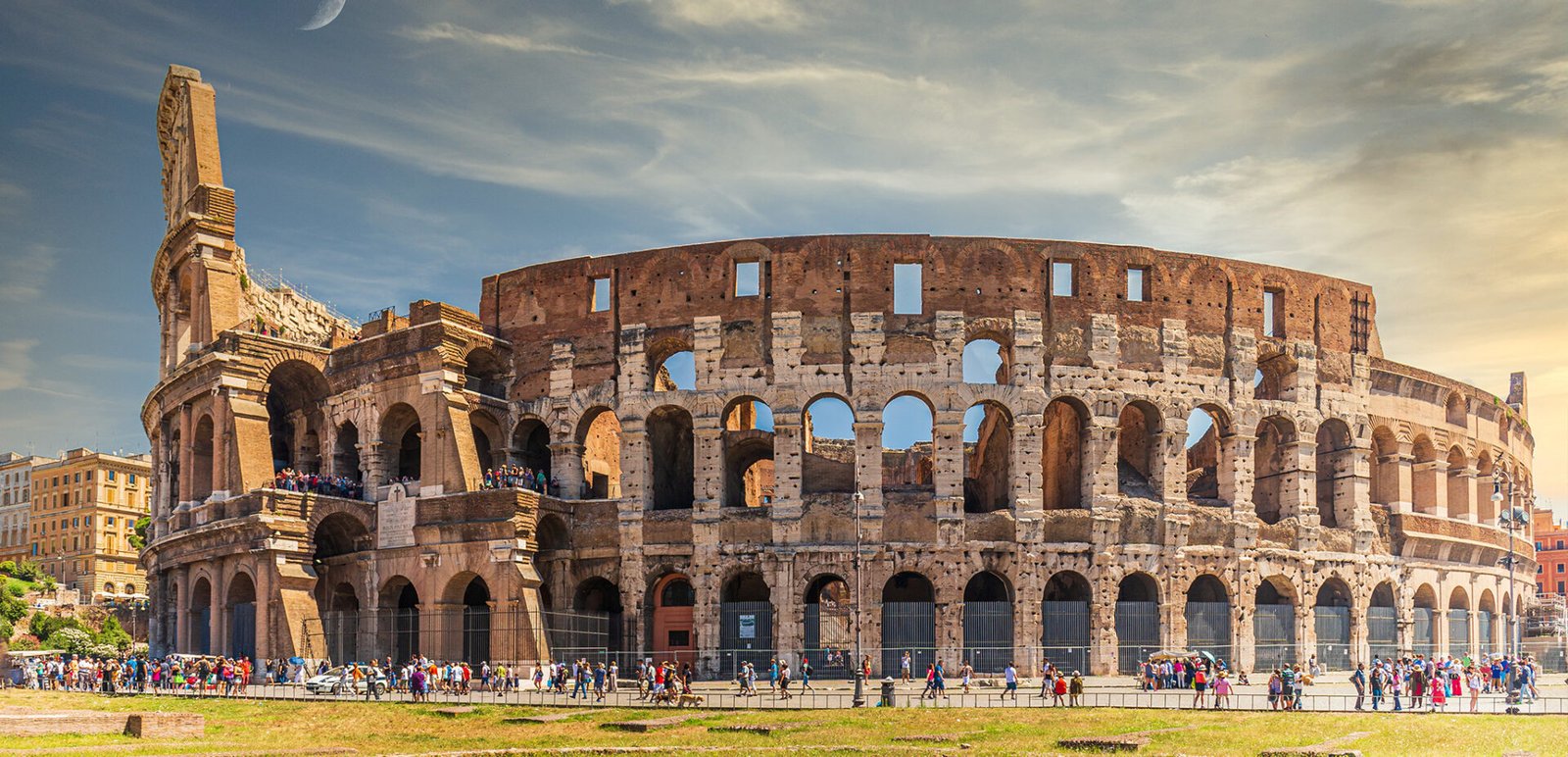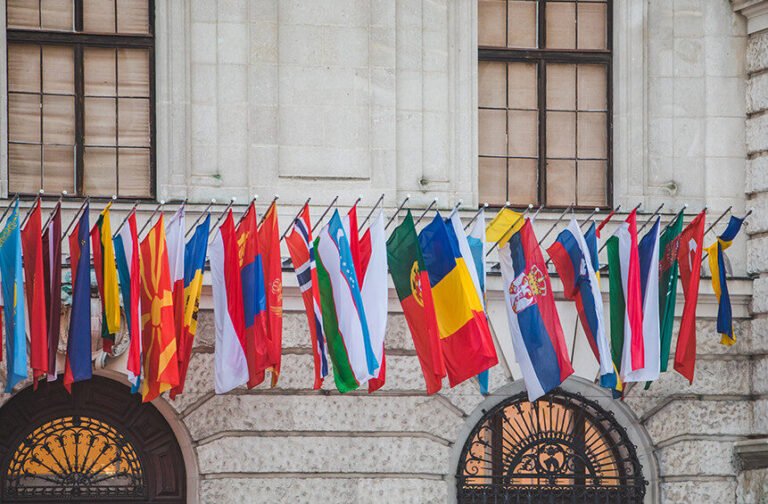Study in Italy 2026: Scholarships, Living Cost & Student Visa
Study in Italy 2026: Scholarships, Living Cost & Student Visa
Italy, with its rich cultural heritage, world-class education system, and breathtaking landscapes, has become an increasingly popular destination for international students. If you're considering to study in Italy 2026, this comprehensive guide covers everything you need to know about scholarships in Italy, the cost of living in Italy, and the Italian student visa process.
As one of the most affordable countries to study abroad Europe, Italy offers exceptional value with tuition fees significantly lower than many other European destinations. Combined with numerous scholarship opportunities and a vibrant student life, Italy presents an attractive option for those looking to study in Europe without breaking the bank.
Table of Contents
- Why Study in Italy in 2026?
- Italian Higher Education System
- Top Universities in Italy
- Scholarships in Italy for International Students
- Cost of Living in Italy for Students
- Italian Student Visa Process
- Application Process for Italian Universities
- Working While Studying in Italy
- Post-Study Opportunities in Italy
- Frequently Asked Questions
Why Study in Italy in 2026?
Italy offers a unique blend of academic excellence, cultural richness, and affordable education that makes it an ideal destination for international students. The country boasts some of the world's oldest universities, with the University of Bologna established in 1088, making it the oldest university in continuous operation.
World-Class Education
Italian universities consistently rank among the best in global rankings, particularly in fields like architecture, design, engineering, and business. The country's education system emphasizes both theoretical knowledge and practical application, preparing students for successful careers in their chosen fields.
Cultural Experience
From the ancient ruins of Rome to the Renaissance art of Florence and the canals of Venice, Italy offers an unparalleled cultural experience. Students have the opportunity to immerse themselves in a country that has significantly influenced Western art, architecture, cuisine, and culture.
Strategic Location
Italy's central location in Europe makes it an excellent base for exploring other European countries. With efficient rail connections and numerous budget airlines, students can easily travel to neighboring countries during breaks and weekends.
Get Free CounsellingItalian Higher Education System
Understanding the Italian higher education system is crucial for international students planning to study in Italy 2026. The system follows the Bologna Process, making Italian degrees compatible with other European qualifications.
Types of Institutions
Italy has three main types of higher education institutions:
- Universities: Offer a wide range of academic programs across various disciplines
- Polytechnics: Focus on applied sciences and technical education
- AFAM Institutions: Higher education for art, music, and dance
Degree Structure
The Italian system follows a three-cycle structure:
| Cycle | Degree | Duration | ECTS Credits |
|---|---|---|---|
| First Cycle | Bachelor's Degree (Laurea) | 3 years | 180 |
| Second Cycle | Master's Degree (Laurea Magistrale) | 2 years | 120 |
| Third Cycle | Doctorate (Dottorato di Ricerca) | 3-4 years | N/A |
For official information about the Italian education system, visit the Italian Ministry of Education website.
Top Universities in Italy
Italy is home to numerous prestigious universities that attract students from around the world. Here are some of the top institutions for those planning to study abroad Europe:
Politecnico di Milano
Ranked as Italy's top technical university, Politecnico di Milano excels in engineering, architecture, and industrial design. The university offers numerous programs in English and has strong industry connections.
University of Bologna
As the world's oldest university, the University of Bologna maintains a reputation for academic excellence across a wide range of disciplines, particularly in humanities, law, and medicine.
Sapienza University of Rome
One of Europe's largest universities, Sapienza offers an extensive range of programs and boasts notable alumni including Nobel laureates and prominent scientists.
Bocconi University
Located in Milan, Bocconi is internationally recognized for its business and economics programs, consistently ranking among the top business schools in Europe.
For university rankings and reviews, check QS World University Rankings.
Get Free CounsellingScholarships in Italy for International Students
Numerous scholarships in Italy are available to help international students fund their education. These range from government-funded programs to university-specific awards.
Italian Government Scholarships
The Italian government offers scholarships for international students through the Ministry of Foreign Affairs and International Cooperation. These scholarships typically cover tuition fees, health insurance, and provide a monthly allowance.
University Scholarships
Many Italian universities offer their own scholarship programs for international students. These may include:
- Tuition fee waivers
- Merit-based scholarships
- Need-based financial aid
- Research assistantships
Regional Scholarships
Various Italian regions offer scholarship programs to attract international students. The EDISU Piemonte program in the Piedmont region and the DSU Toscana in Tuscany are notable examples.
External Scholarship Programs
International organizations and foreign governments also offer scholarships for studying in Italy. These include the Erasmus+ program for European students and various bilateral agreements between countries.
Pro Tip: Start researching scholarships at least 12-18 months before your intended start date. Many scholarships have early application deadlines, and preparing strong applications takes time.
For detailed information on available scholarships, visit the official Italian Ministry of Foreign Affairs website.
Cost of Living in Italy for Students
Understanding the cost of living in Italy is essential for budgeting your study abroad experience. While costs vary by city, Italy generally offers a more affordable study destination compared to other Western European countries.
Accommodation Costs
Accommodation is typically the largest expense for students in Italy. Costs vary significantly between cities:
| City | University Dormitory | Private Shared Apartment | Private Studio |
|---|---|---|---|
| Milan | €300-€500/month | €400-€700/month | €600-€900/month |
| Rome | €250-€450/month | €350-€600/month | €500-€800/month |
| Florence | €200-€400/month | €300-€500/month | €450-€700/month |
| Bologna | €180-€350/month | €250-€450/month | €400-€600/month |
Food and Groceries
Students can expect to spend approximately €200-€300 per month on groceries and dining out. Cooking at home and shopping at local markets can significantly reduce food expenses.
Transportation
Most Italian cities offer discounted public transportation passes for students, typically costing €20-€35 per month. Many cities are also highly walkable and bike-friendly.
Other Expenses
Additional monthly expenses include utilities (€50-€100), mobile phone (€10-€20), entertainment (€50-€100), and health insurance (€50-€100).
For current cost of living comparisons, check Numbeo's cost of living data for Italy.
Get Free CounsellingItalian Student Visa Process
Non-EU students need to obtain an Italian student visa before arriving in Italy. The process involves several steps and requires careful preparation.
Types of Student Visas
Italy offers two main types of student visas:
- Type C (Short-stay): For courses lasting up to 90 days
- Type D (Long-stay): For courses lasting longer than 90 days
Visa Application Requirements
To apply for an Italian student visa, you typically need:
- Completed visa application form
- Valid passport with at least two blank pages
- Passport-sized photographs
- Letter of acceptance from an Italian university
- Proof of sufficient financial means (approximately €450-€600 per month)
- Health insurance coverage
- Proof of accommodation in Italy
- Flight reservation
Application Timeline
Start the visa application process at least 3-4 months before your intended departure date. The processing time typically takes 4-8 weeks, depending on the Italian consulate in your home country.
Important: After arriving in Italy with a student visa, you must apply for a residence permit (Permesso di Soggiorno) within 8 days of arrival. This permit allows you to legally stay in Italy for the duration of your studies.
For the most current visa requirements, always check the official Italian visa portal.
Application Process for Italian Universities
The application process for Italian universities varies by institution and program, but generally follows these steps:
Step 1: Research and Program Selection
Begin by researching universities and programs that match your academic interests and career goals. Consider factors like program content, language of instruction, location, and tuition fees.
Step 2: Check Entry Requirements
Each university and program has specific entry requirements, which may include:
- Academic transcripts
- Language proficiency certificates (Italian or English)
- Standardized test scores (if required)
- Portfolio (for art and design programs)
- Letters of recommendation
- Statement of purpose
Step 3: Submit Pre-Application (For Non-EU Students)
Non-EU students typically need to submit a pre-application through the Italian embassy or consulate in their home country. This process helps verify academic qualifications and may involve entrance exams for certain programs.
Step 4: Complete University Application
Submit your application directly to the university through their online portal, paying attention to deadlines which vary by institution and program.
For personalized guidance on the application process, explore our study abroad consultation services at Vibedu.
Working While Studying in Italy
International students in Italy are permitted to work part-time while pursuing their studies, providing an opportunity to gain work experience and supplement their income.
Work Regulations for Students
Non-EU students with a valid residence permit can work up to 20 hours per week during academic sessions and full-time during university holidays. However, it's important to balance work commitments with academic responsibilities.
Finding Employment
Common part-time job opportunities for international students include:
- Tourism and hospitality roles
- Retail positions
- English tutoring
- University research assistantships
- Internships related to your field of study
Language Considerations
While English-speaking jobs are available in larger cities and tourist areas, knowing Italian significantly expands your employment opportunities. Consider taking Italian language courses to improve your job prospects.
Get Free CounsellingPost-Study Opportunities in Italy
Italy offers various opportunities for international graduates who wish to remain in the country after completing their studies.
Post-Study Work Visa
Graduates from Italian universities can convert their student residence permit into a work permit or apply for a post-study residence permit to seek employment in Italy.
Job Market for Graduates
Italy has strong employment opportunities in sectors such as:
- Engineering and manufacturing
- Fashion and design
- Tourism and hospitality
- Information technology
- Research and academia
Entrepreneurship Opportunities
Italy offers various startup visas and incentives for entrepreneurs, making it an attractive destination for graduates interested in starting their own businesses.
For information on Italian job markets, visit LinkedIn Jobs Italy.
Frequently Asked Questions
When should I start applying to study in Italy for 2026? +
You should start the application process 12-18 months before your intended start date. Research universities and programs in January-February 2025, prepare application materials from March-May 2025, and submit applications between September 2025 and February 2026, depending on university deadlines.
Do I need to know Italian to study in Italy? +
While many universities offer programs in English, having basic Italian language skills will significantly enhance your experience. For daily life outside university and for programs taught in Italian, language proficiency is essential. Most universities require proof of Italian proficiency for Italian-taught programs.
What is the average tuition fee for international students in Italy? +
Tuition fees vary by university and program. Public universities typically charge €900-€4,000 per year for bachelor's programs and €1,000-€6,000 for master's programs. Private universities are generally more expensive, ranging from €6,000 to €20,000 per year.
Can I work while studying in Italy? +
Yes, international students with a valid residence permit can work up to 20 hours per week during academic sessions and full-time during holidays. However, it's important to ensure that work doesn't interfere with your studies, as maintaining satisfactory academic progress is a visa requirement.
How much money do I need to show for the student visa? +
You need to demonstrate sufficient financial means to support yourself during your studies. The current requirement is approximately €450-€600 per month for the duration of your stay. This can be shown through bank statements, scholarship awards, or financial guarantees.
Is health insurance mandatory for international students in Italy? +
Yes, health insurance is mandatory for all international students in Italy. EU students can use the European Health Insurance Card (EHIC), while non-EU students need to purchase private health insurance or register with the Italian National Health Service (SSN) upon arrival.
Can I extend my stay in Italy after graduation? +
Yes, graduates can apply to convert their student residence permit into a work permit or a permit for seeking employment. Italy offers a post-study residence permit that allows graduates to remain in the country for up to 12 months to seek employment or start a business.
What are the most popular cities for international students in Italy? +
Milan, Rome, Bologna, Florence, and Turin are the most popular cities for international students. Milan is known for business and design, Rome for humanities and history, Bologna for its prestigious university, Florence for art and culture, and Turin for engineering and technology.
Final Thoughts
Study in Italy 2026 offers an incredible opportunity to receive a world-class education while immersing yourself in one of Europe's most culturally rich countries. With affordable tuition fees, numerous scholarships in Italy, and a manageable cost of living in Italy, it represents excellent value for international students.
The Italian student visa process, while requiring careful preparation, is straightforward for well-prepared applicants. By starting your preparations early, gathering all necessary documents, and following the application guidelines carefully, you can navigate the process successfully.
Whether you're drawn to Italy for its academic excellence, cultural experiences, or career opportunities, studying in this beautiful Mediterranean country can be a transformative experience that shapes your personal and professional future.
For official updates on studying in Italy, regularly check the Universitaly portal.
Get Free Counselling








